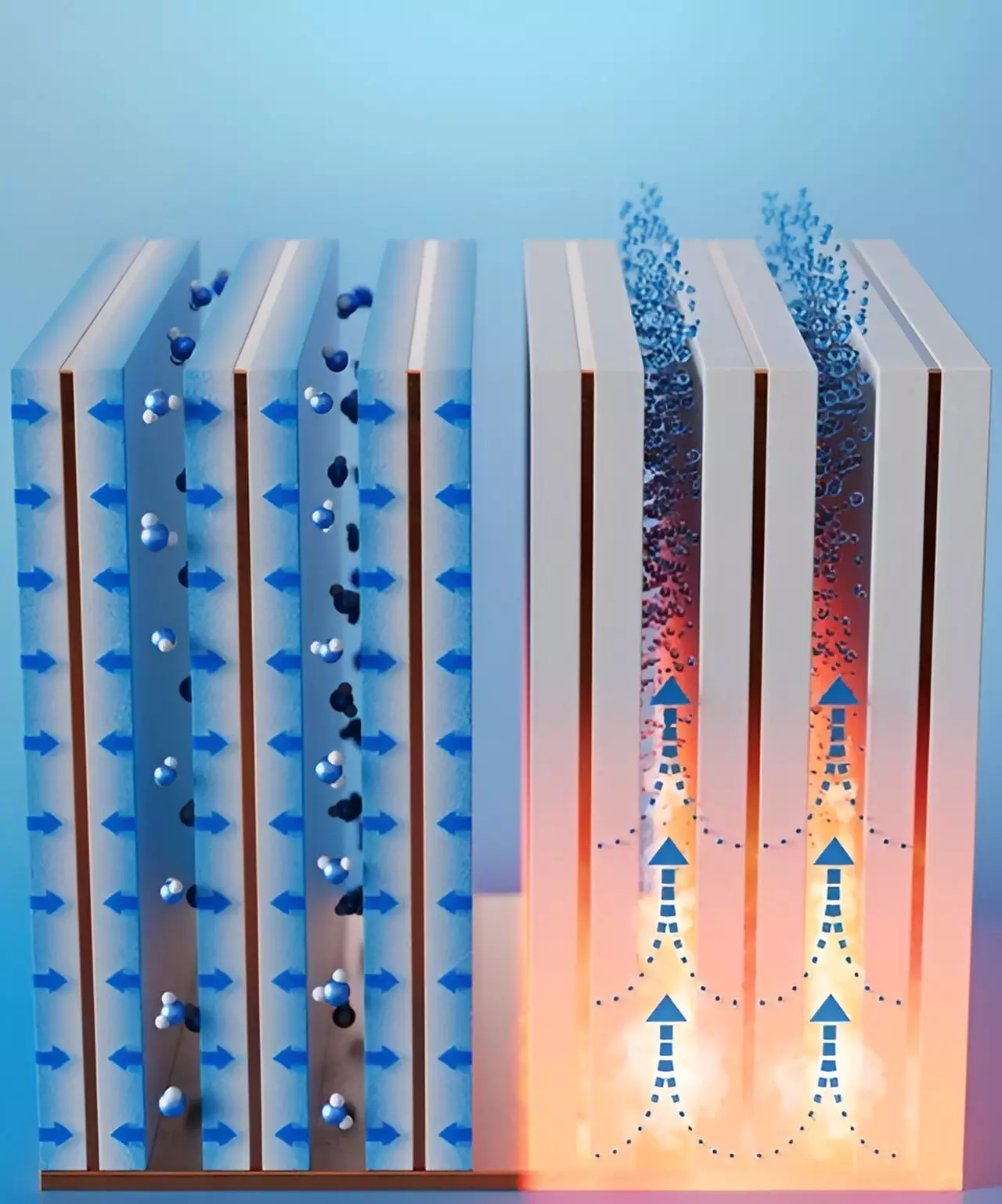

Water is a vital resource essential for human survival, yet many regions around the world face challenges in accessing clean and safe water. The availability of water often depends on local bodies of water, making it a limited resource in certain areas. However, even in dry regions where water scarcity is a pressing issue, there is still potential to harness water from the atmosphere.
Researchers have recently developed a groundbreaking device designed to extract moisture from the air, offering a potential solution to the growing demands for water in arid locations. This compact device features absorbent-coated fins that are capable of trapping moisture and converting it into potable water when heated. The innovative design of this prototype has the potential to revolutionize water harvesting technologies.
The humidity harvester utilizes water-adsorbent “fins” made up of copper foams coated in a specialized zeolite material. This unique design allows for efficient moisture capture from the air, even in low humidity conditions. The compact nature of the device, along with its ability to quickly generate water, sets it apart from previous water harvesting systems. By co-designing the adsorption bed with material properties, the researchers have succeeded in creating a practical solution for water scarcity.
In proof-of-concept demonstrations, the device showed promising results, with the ability to produce up to 1.3 liters of potable water per day in air with 30% relative humidity. This level of water generation surpasses previous devices and offers new possibilities for water harvesting in arid regions. By extrapolating the data to 24 collection-release cycles, the researchers have identified a key opportunity for rapid moisture capture and water generation, multiple times per day. This innovative system could be integrated into existing infrastructures that produce waste heat, providing a cost-effective solution for water scarcity.
With further development and refinement, this water harvesting technology has the potential to be seamlessly integrated into various applications, such as buildings or transportation vehicles. By utilizing waste heat as a heat source, the device can generate water efficiently and sustainably, offering a practical solution for water shortages in arid regions. The researchers behind this project envision a future where this innovative water harvesting system becomes a standard feature in locations facing water scarcity.
Overall, the advancements in water harvesting technologies offer hope for addressing water scarcity challenges around the world. Through innovative solutions like the humidity harvester, researchers are paving the way for a more sustainable and water-secure future for all.
In the world of pharmaceuticals, innovation often hinges on finding new compounds that can lead…
In the heart of the Amazon basin, drastic climate changes present an alarming reality that…
Air fryers have rapidly surged in popularity, captivating home cooks and culinary enthusiasts alike. When…
In an era where technology and social media reign, the importance of sleep often takes…
In an era where environmental consciousness is paramount, the maritime industry has long been scrutinized…
Radionuclides, often relegated to discussions surrounding nuclear energy and radioactive waste, have far-ranging implications for…
This website uses cookies.